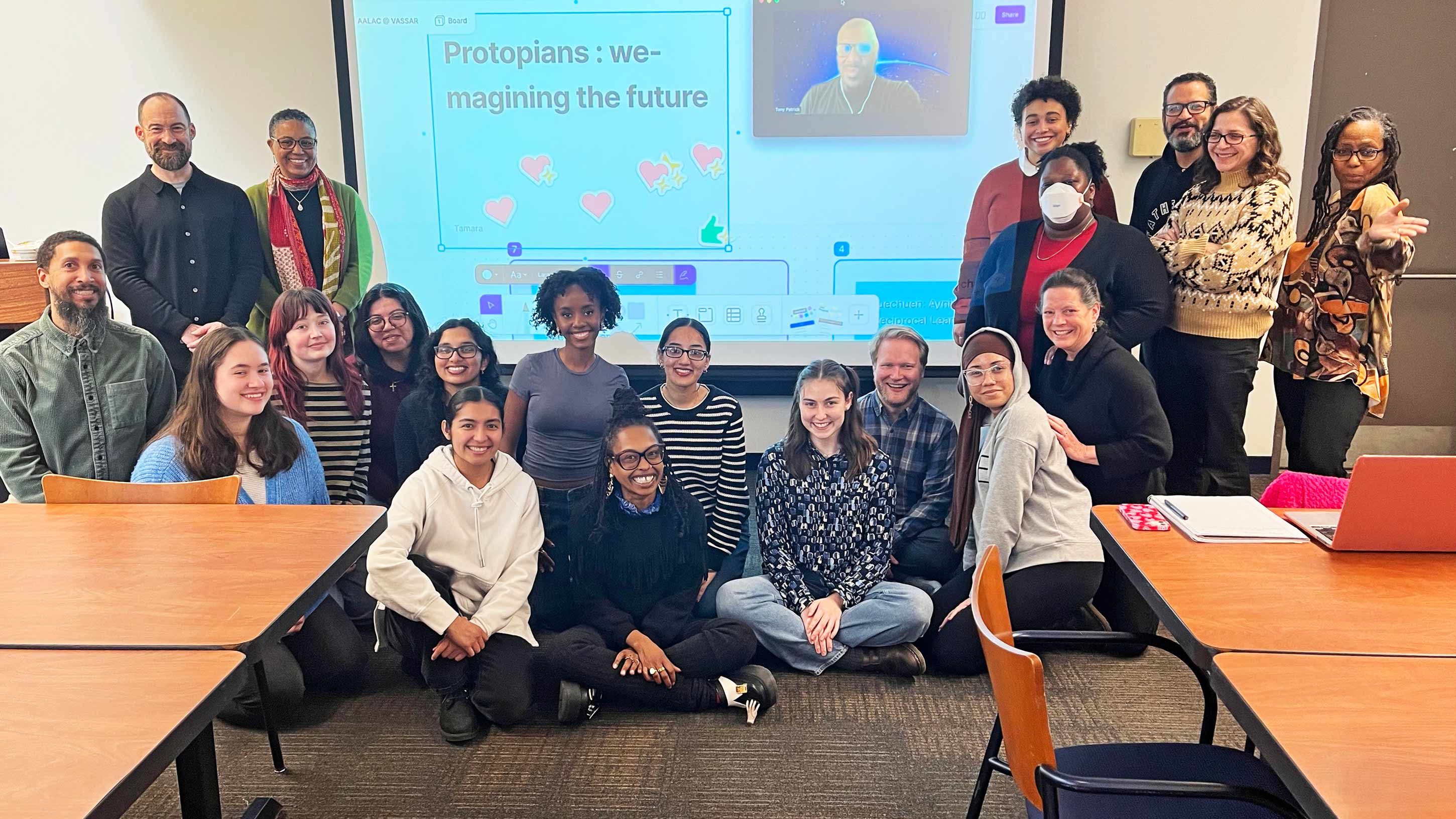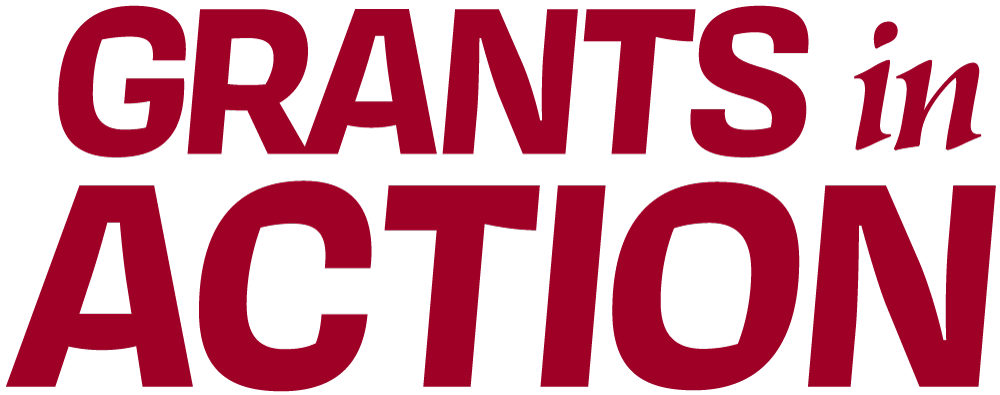Workshops Aim to Address Reforms in Higher Education
Starting on March 27, faculty from Vassar, Bryn Mawr, and Grinnell colleges will host a four-day program at Vassar’s Institute for the Liberal Arts that will explore ways of reforming higher education in the coming decades. To prepare for the event, two Vassar faculty members and two experts in imagining futures convened on the Vassar campus for three days of workshops sponsored by the Alliance to Advance Liberal Arts Colleges (AALAC).

The AALAC workshop was organized by Vassar Associate Professor of Anthropology Candice Lowe Swift; Associate Professor of Sociology Eréndira Rueda; Alison Cook-Sather, Mary Katharine Woodworth Professor of Education at Bryn Mawr College and Director of the Teaching and Learning Institute at Bryn Mawr and Haverford Colleges; and Caleb Elfenbein, Professor of History and Religious Studies at Grinnell College and Associate Dean for Faculty Development and Diversity, Equity, and Inclusion, past director of the Center for the Humanities. Throughout the two and a half days, the workshop was facilitated by New York University Professor Tony Patrick, founder of Tenfold Gaming Initiative, which encourages underrepresented teens to pursue tech and game design careers; and Errol King, founder of Hidden Level Games, which enables teens to share digital games globally and encourages them to pursue careers in game design and computer programming.
Attended by more than two dozen students, faculty, and administrators from Vassar, Bryn Mawr, and Grinnell, the workshops offered the participants the opportunity to suggest ideas about how they’d like higher education to look in 30 or 40 years. Suggestions included debt-free education, more emphasis on the performing and visual arts, better accessibility for disabled students, increased student input on syllabi in consultation with faculty, greater emphasis on care for the Earth, and a breakdown of existing barriers between colleges and universities and their surrounding communities.
Rueda and Lowe Swift said the AALAC-sponsored event and its March 27-30 sequel were inspired by Afro-futurists like Octavia Butler and climate change activists at the University of Toronto. More broadly, the idea to collaborate sprang from their experience in co-writing an edited volume, titled Academic Belonging in Higher Education: Fostering Student Connection, Competence, and Confidence.
Rueda said the workshops were designed to “create opportunities for educators and students to dream together and think about how we might collectively produce some of what we’d like to see happening in our classrooms, on our campuses, and in higher ed more generally.”
“Of particular importance to the process is the ability to collaborate with students,” Rueda continued, “since learning and dreaming alongside our students is a core component of the work we do as educators, in and outside of formal classroom spaces.”
The March Signature Program entailed a joint keynote address by Antero Garcia, Associate Professor in the Graduate School of Education at Stanford University and Vice President of the National Council of Teachers of English, and Nicole Mirra, Associate Professor of Urban Teacher Education Learning and Teaching, Rutgers, New Brunswick. As co-editors of Speculative Pedagogies: Designing Equitable Educational Futures (2023,Teachers College Press), their work explores the possibilities of speculative imagination and healing in educational research.
